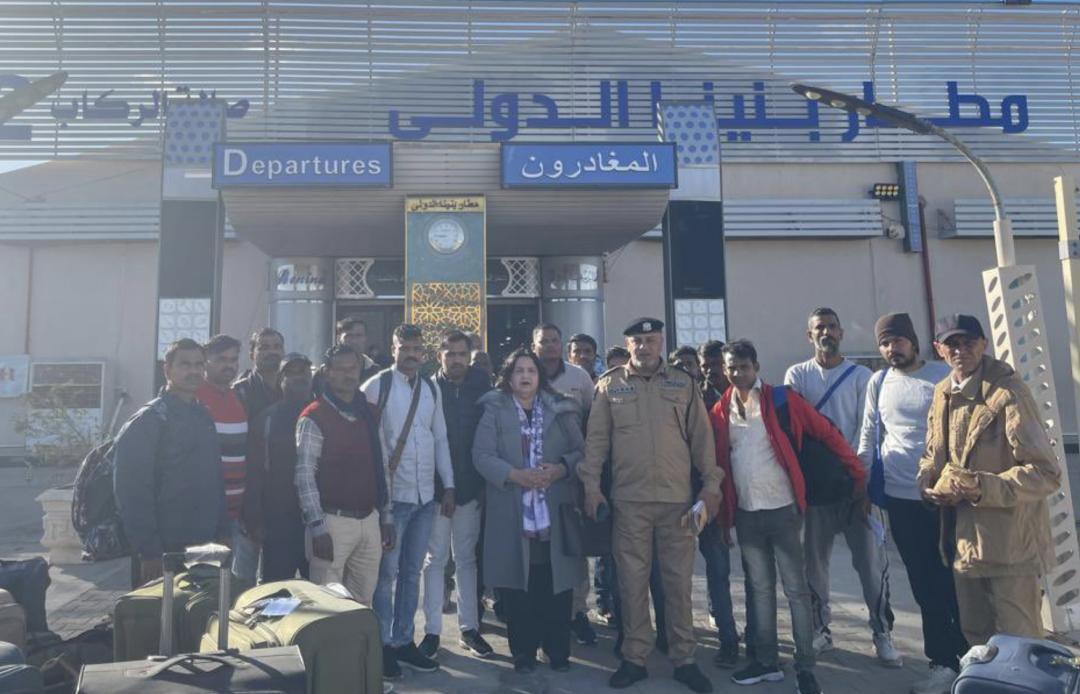 |
|
The recent repatriation of 18 Indian nationals from Benghazi, Libya, highlights the ongoing challenges faced by citizens working abroad in unstable regions. The incident underscores the critical role played by diplomatic missions in protecting and assisting their citizens in times of crisis. These 18 individuals, who had traveled to Libya seeking employment opportunities, found themselves stranded for several weeks due to the complex and volatile security situation prevailing in the country. Libya, having endured years of political instability and conflict, presents a significant risk to foreign nationals, particularly those working in less secure environments. The precarious security landscape, often characterized by armed conflicts, civil unrest, and unpredictable violence, creates an environment where the safety and well-being of expatriates are constantly at risk. The challenges extend beyond simple security threats; logistical hurdles, bureaucratic complexities, and the lack of readily available resources often compound the difficulties faced by stranded citizens.
The successful repatriation mission orchestrated by the Indian Embassy in Libya showcases the dedication and resourcefulness of diplomatic personnel in responding to such emergencies. The embassy's close collaboration with local authorities was instrumental in navigating the intricate process of securing the safe passage of the 18 Indian workers. This cooperation emphasizes the importance of maintaining positive diplomatic relationships, even in challenging geopolitical contexts. The effectiveness of the rescue operation also points to the need for proactive measures by governments to ensure the safety and protection of their citizens working abroad. Pre-departure briefings, robust emergency response plans, and well-established communication channels are vital for mitigating risks and ensuring swift action during crises. Furthermore, the incident serves as a reminder of the inherent risks involved in seeking employment in unstable regions. While the allure of job opportunities might be strong, a thorough assessment of the security situation and the availability of support networks is crucial before embarking on such ventures.
The repatriation of the 18 Indian nationals from Benghazi carries broader implications for India's foreign policy and its commitment to the welfare of its diaspora. It reinforces the government's dedication to protecting its citizens abroad, regardless of their location or the challenges they face. The incident also sheds light on the importance of investing in robust consular services and strengthening diplomatic ties with countries where significant numbers of Indian citizens work or reside. Moreover, the successful rescue mission should prompt a reevaluation of existing safety guidelines and support mechanisms for Indian workers abroad. This might include improved pre-departure briefings, enhanced insurance coverage, and more readily available resources for those who face difficulties overseas. The ongoing security situation in Libya, and other similarly unstable regions, demands a continuous assessment of risk and a proactive approach to ensuring the safety and well-being of Indian citizens working in those areas. The government's commitment to swiftly and effectively responding to such situations is crucial to upholding its responsibilities and protecting its citizens abroad.
Moving forward, a multi-faceted approach is needed to address the challenges posed by the complex security environments faced by expatriate workers. This would include proactive engagement with host countries to enhance security cooperation, bolstering the capacity of diplomatic missions to handle emergencies, and providing comprehensive pre-departure training and support to citizens considering working in high-risk regions. Investment in technology and communication systems can improve response times and aid in the swift identification and assistance of stranded individuals. Collaboration with international organizations and other countries with citizens working in similar regions would facilitate the sharing of best practices and improve overall effectiveness. The case of the 18 Indian nationals successfully repatriated from Benghazi underscores the critical need for a comprehensive and proactive strategy to protect Indian citizens abroad, enabling them to pursue opportunities while safeguarding their safety and well-being in an increasingly interconnected and often unstable global environment.
